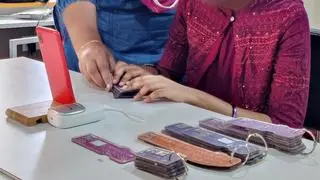Sarath Naru, Managing Partner, Ventureast, makes his home in three cities — Chennai, Hyderabad and Bengaluru. He believes in investing in contrarian sectors, ones that are not popular with other venture capitalists. Ventureast has close to $300 million under management and invests in multiple sectors and stages of a business, from seed-, early- to growth-stage.
Education: Engineering from IIT Madras and MBA from Booth School of Business, University of Chicago, US.
Prior experience: Management trainee at VST Industries, where I worked for two years, but felt that a management-manufacturing role was not for me. Then I went to Booth School, but felt that I was not going to be a great finance guy, so I joined Procter & Gamble USA in brand management/marketing in Cincinnati. I felt that I wasn’t going to be good at that either. I became a cross-border entrepreneur exporting and importing engineering and fashion goods. I felt that was not my cup of tea either, so I became a venture capitalist. That is where I am since 1997. As Guy Kawasaki would say, if you are an abject failure many times over, then that is one qualification for becoming a VC.
Sectors interested in: My broad theme is to find sectors that are either cutting edge over the next five years or those that are not extremely popular within our tribe — that is, contrarian sectors.
Investments: My investments have ranged across a variety of sectors, from Ocean Sparkle (India’s leading port management services company), Moschip Semiconductor, 24 Mantra (leading organic food venture), Evolva (synthesising natural products), Loyalty Rewardz (loyalty programme for credit and debit cards), Portea (home healthcare), and recently an exciting seed-stage company being incubated at IIT Madras using cutting edge machine vision and analytics.
Typical working day: I would hate to see one of my children or my young nephews see what I do on a day-to-day basis. I am on the phone. I am having meetings. I am catching flights/travelling, and sending e-mails on my laptop or my phone. So, when do I do real work? Having said that, our business is purely intellectual, our impact if at all is indirect. So how we influence and how readily we accept/learn, how we counsel or recommend solutions, how we motivate the people around us has become the core part of our work.
Hobbies: I have a keen interest in interior design, designing furniture, and design in general. Practice in personal situations and do the sketching myself. I play golf, but not enough — more like once-a-month. I have become a coffee planter. An aspiring experimental cook, dabbling on special occasions — have a collection of over a 100 cook books that I hope to get to.
Gadgets: My Royal Enfield Bullet, my iPhone 6, and more recently my carpentry powered tool set.
Advice to entrepreneurs: Any investor would want to invest in the best possible team for that particular space/situation. Keep that in mind. Can your team be positioned in that manner? Ideally who should be on this team? But don’t be disheartened, as there are ways to build such dream-teams, and the ‘entrepreneurial spirit’ is one invisible element you will always have that a theoretical team may not have. Do you have a unique way of solving this big problem? Scour the competitive world carefully and do a deep analysis of all current and potential competitors. This analysis and your positioning here is critical for me.








Comments
Comments have to be in English, and in full sentences. They cannot be abusive or personal. Please abide by our community guidelines for posting your comments.
We have migrated to a new commenting platform. If you are already a registered user of TheHindu Businessline and logged in, you may continue to engage with our articles. If you do not have an account please register and login to post comments. Users can access their older comments by logging into their accounts on Vuukle.